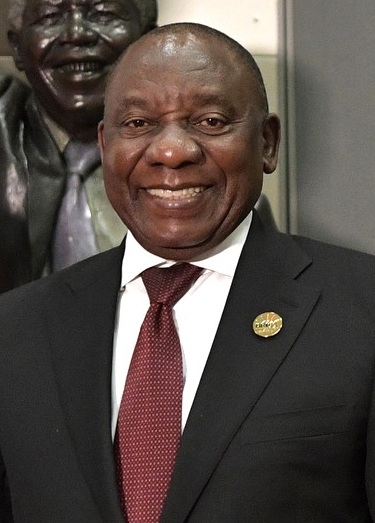
FIRS clarifies restriction on millionaires’ Bank Accounts
SPECIAL REPORT: ‘It’s Unfair, Unlawful for People to Deduct Taxes and Fail to Remit Same to Authorities’, FIRS Clarifies Restriction on Millionaires’ Bank Accounts
Between 2010 and 2018, Nigeria would have lost at least N120 trillion to tax evasion by millionaire businessmen. According to information from the apex tax authority in Nigeria, the Federal Inland Revenue Service (FIRS), more than 85, 000 bank account holders who have turnovers of between N100, 000, 000 (One Hundred Million Naira) and N1, 000, 000, 000 (One Billion Naira) have been identified to be defaulting in tax payment. Out of the 85, 000 companies, 59, 000 do not have Tax Identification Number (TIN) at all while the rest have TIN but they are not filing returns to the FIRS.
If 100, 000 companies whose annual turnover is at least 500, 000, 000 (Five Hundred Million Naira) pay their Companies Income Tax (CIT) alone at the rate of 30 percent for a period of 8 years, collection would be at the neighbourhood of N120 trillion. This is from CIT alone. Much more could have come from Value Added Tax (VAT) among other tax types.
Then imagine what the government would have been able to do with the N120 trillion?
ALSO READ:
SPECIAL REPORT: How Fowler’s FIRS is Stimulating Nigerian
Economy Through Empowering 37 Million MSMEs
But these monies are what the government lose to millionaire tax defaulters but some individuals do not see anything wrong about it.
Following debate in the public fora over the legality or otherwise of the ongoing placement of lien on millionaires’ bank accounts by the tax authority in Nigeria, the FIRS, FIRS has explained that the action, which it termed substitution of bank accounts, is being done in the interest of the public.
The FIRS has explained that it took the initiative to bring tax justice to bear by ensuring that no group of people short-changes the other no matter what the circumstance is.
“59,000 companies who charge Value Added Tax (VAT) and sometimes Withholding Tax (WHT) from taxpayers do not have Tax Identification Numbers (TIN) to either pay their taxes or remit the VAT or WHT taxes they charge to appropriate authorities. It would be unfair and unlawful to allow people like this to operate and get away with it”, said Fowler.
In order to ensure tax justice, protect all taxpayers and also ensure that monies deducted from taxpayers in the form of VAT or WHT by business owners are properly accounted for and paid into the right treasury, FIRS said it had to fall back on ordering restriction of defaulters’ bank accounts.
Within months of effecting this substitution, the Service realised the sum of N23 billion for the government.

FIRS Lifts Lien on tax defaulters’ Bank Accounts
The substitution exercise has generated a lot of controversy both from the people affected by the exercise and their tax managers. While some people see the action taken by FIRS as illegal, others see the exercise as legal but faulted FIRS on not properly communicating the taxpayers before the exercise.
The FIRS has also been faulted for not taking due diligence to ensure that taxpayers who are up-to-date with their tax obligations are not caught-up in the cross-fire.
The FIRS Executive Chairman, Tunde Fowler, has insisted that the Service has constitutional backing to substitute taxpayers accounts but however apologised to the taxpayers whose bank accounts were wrongly frozen.
“On behalf of the Federal Inland Revenue Service, I apologised to some taxpayers whose accounts were frozen in error in the recent exercise. We admit that there was an administrative error and some taxpayers’ accounts were frozen in error. We have expressed our apologies to the affected people. On behalf of the Service, I like to apologise to them again,” he said.
Global auditing firm, KPMG, berated the FIRS for freezing bank accounts of suspected tax defaulters.
KPMG said giving fiats to banks to freeze the accounts contravene the Companies Income Tax Act.
It said, “Nothing in the CITA or FIRSEA authorises the FIRS to impose a freeze order on a taxpayer’s bank account beyond the amount of tax proven to be due and payable by that taxpayer.
“The requirement directed to banks not to honour mandates from taxpayers over and above the tax amount supposedly proven by FIRS to be due and payable is without foundation and goes too far.”
“The letters to the SBs leave them with seven days within which to comply with the directives of the FIRS. This is contrary to the provisions of Sections 69 and 77(3) of CITA, which permits a taxpayer a 30-day period of review and objection.”
In addition to freezing the accounts, the tax collector also stopped some companies from paying staff salaries or carrying out routine transactions.
The FIRS ordered the banks to deduct the alleged tax debt from these bank accounts “in full or partial payment”.
The KPMG’s statement was contained in its KPMG in Nigeria issue 2.5 released in February 2019. The firm noted that the FIRS had gone too far in its bid to get more people into the tax net.
KPMG maintained that Section 69 of Companies Income Tax Act (CITA) 2004 “allows a taxpayer to object to a disputed assessment within thirty (30) days from the date of service of the notice of assessment”.
Section 77 (3) of CITA further provides that the collection of tax, in any case where notice of an objection or appeal has been given by a taxpayer, shall remain in abeyance until such objection or appeal is determined,” KPMG adde
Also, the Lagos Chamber of Commerce & Industry (LCCI) expressed concern over reports by corporate bodies that their accounts were being frozen and debited by the FIRS because of tax defaults.
Its Director-General of LCCI, Mr. Muda Yusuf, in a statement, said the FIRS derives its powers from section 31 of the FIRS Act that gave it powers to appoint collection agents for the recovery of tax payable by the taxpayer.
He said though LCCI is a strong proponent of regulatory compliance by private sector players it is however, important to note that tax administration should be in consonance with the basic tenets of the rule of law and the fundamental principles of a good tax system.
He further noted that “Taxpayers should be given ample opportunity to defend their positions on tax matters before a lien is placed on their bank accounts. There are instances where company accounts were frozen in error because there was no proper engagement, documentation or communication with the tax payers
But Fowler insisted on the legality of the exercise: “Initially, the FIRS did not like to be telling all the stories. But now, with calls for clarification, we have t0 clarify this. I had a meeting with stakeholders last year where we identified some operators who make turn-overs of between N100,000,000 (One Hundred Million Naira) to N 1,000,000,000 (One Billion Naira) but do not have Taxpayer Identification Numbers. But in the course of their businesses, they charge VAT and perhaps WHT. If these companies do not have TIN, it means that they are not their paying taxes and at the same time, they are not remitting the VAT and WHT they charge on taxpayers to the appropriate authority.
“Let me be careful with the words I use, but sincerely, it is wrong for any company to deduct monies meant for the government and fail to remit them. That should not be allowed to happen.
“Then we said, if these people don’t come forward to get TIN and pay appropriate taxes, we will freeze their bank accounts,” Fowler explained.
Following turn-up of taxpayers to clear their arrears, the FIRS wrote to the banks to lift lien on bank accounts temporarily for a period of 30 day. Fowler said the banks will return the lien on tax defaulters’ bank accounts after the 30 days grace period.
The FIRS Chairman said the Service has been steadily increasing revenue collection over the years with reduced cost of collection.
“In 2016 collected N3,307 trillion, in 2017 we collected N4,027 trillion and in 2018 we collected N5,320 trillion. Meanwhile, the cost of collection as a percentage of actual taxes collected has been reducing; in 2016 it was 2.6%, in 2017 it was 2.49% while in 2018 it was 2.14%.”
“The Service has been making tremendous efforts in also increasing the amount of non-oil revenue it collects. Non-oil collection has contributed 64.99% in 2016, in 2017 it contributed 62.25% and in 2018 it contributed 53.62%. This represents the government’s focus on increasing non-oil sources of revenue and the diversification of the Nigerian economy.
Fowler noted that various initiatives were implemented by FIRS to enhance tax administration and make taxation as easy as possible. FIRS deployed ICT initiatives that enable a taxpayer to pay taxes from anywhere in the world, at any time. With the e-payment channel one can pay taxes with the click of a button and one can also download their receipts. Other e-Services are the e-Registration, e-Filing, -Stamp Duty and e-Tax Clearance Certificate.
“Taxpayers can now also choose the tax office where they would like to conduct their tax transactions. Before now, if one was registered with a particular tax office, one had to conduct all of their tax transactions in that office. However, to make it more convenient for the taxpayer, they can now choose which ever office they wish to conduct their transactions with.
He noted that Nigerian taxpayers are embracing the modern way of tax collection, introduced by the FIRS through the 6-e Solutions.
Said Fowler: We are automating the collection of Value Added Tax, VAT in key sectors which will facilitate reduction in compliance cost in the long term. We are doing System to system integration between banks and FIRS. And I am happy to announce to you that we had a 31% increase year on year in VAT collection in the banks that have gone live between Jan 2017- Dec 2018 and collected 25bn so far
“Amongst others, there is also the Government Information Financial Management Information System (GIFMIS), which links FIRS to the Office of the Accountant General of the Federation OAGF for real-time exchange of information and data. We are also automating the payment of VAT by states through the State Offices of Accountant General Platform (SAG). This will ensure that we automate and deduct at source and remittance of VAT and WHT from State governments contract payments directly to FIRS’s account and so far, collected 13bn.
He noted that taxpayers that requested for and processed their Tax Clearance Certificate, TCC through tcc.firs.gov.ng, from the comfort of their homes. “Tax clearance on the platform grew from 9,574 – 59,350 within a year of introducing the platform.
“Auto VAT collection in key sectors has also facilitated in reducing the cost of compliance. Between January, 2017 and December, 2018 VAT collection increased by 31% which translates to a collection of N25 billion”, he added.




Recent Comments